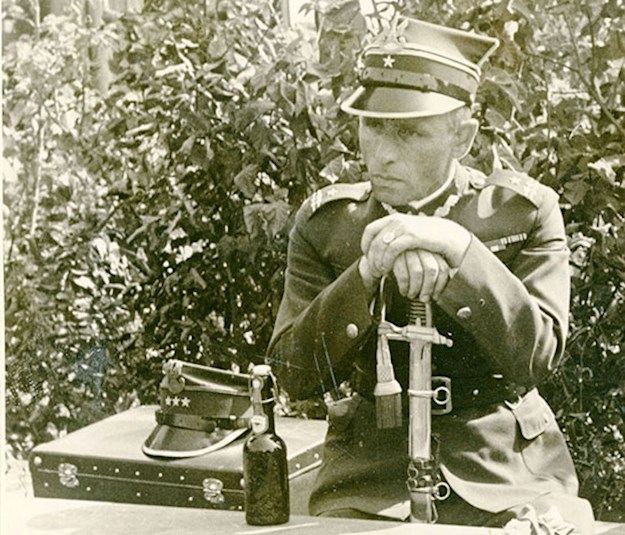Major Henryk Sucharski, the commander of the small garrison at Westerplatte, was under orders to thwart the German advance for 12 hours. He managed to hold out an amazing seven days. After the war he became a national hero and was posthumously awarded an important military decoration.
Henryk Sucharski was born on 12 November 1898 in Gręboszów near Tarnów. During the First World War he fought on the Italian front and after that in the Polish-Bolshevik War, where he was decorated for bravery. In 1938 he was promoted to major and appointed commander of the Military Transit Depot on Westerplatte. His garrison was supposed to offer resistance for 12 hours in case of a German invasion. The Germans indeed attacked Westerplatte on 1 September 1939. The next day, Sucharski ordered the burning of secret documents and considered surrender. But he decided to continue the defence. Only after the collapse of Guardhouse no. 2 on 7 September, Sucharski finally capitulated.
After his liberation from a POW (prisoners of war) camp, Sucharski joined the 2nd Polish Corps in Italy where he commanded the 6th Carpathian Rifle Battalion. Exhausted by his years of captivity and tormented by doubts, Sucharski died on 30 August 1946 and was buried at the Polish military cemetery in Casamassima. On 1 September 1971 the urn with his ashes was reburied at the Cemetery of the Defenders of Westerplatte.
Sucharski was posthumously awarded the Virtuti Militari Commander’s Cross. Numerous schools and streets in Poland have been named after him.

